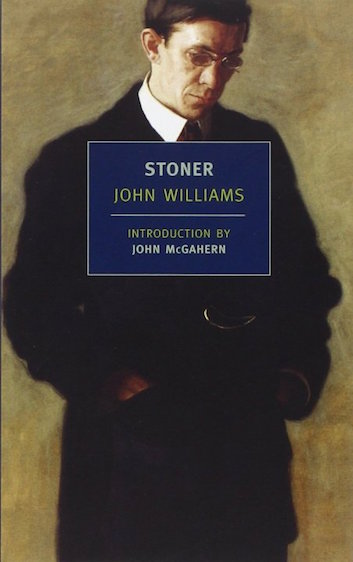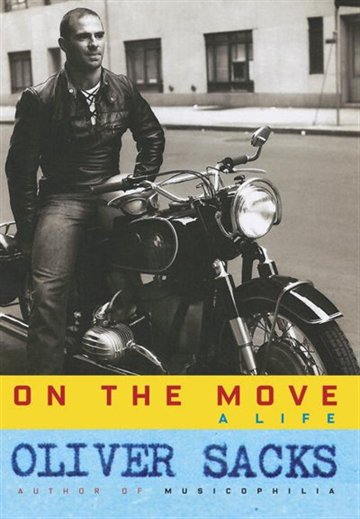
Although John Williams’s novel “Stoner” was first published in 1965, it seems to be having a resurgence these days in North America, and apparently became a bestseller in Europe in 2013. Go figure. It happened by word-of-mouth or what have you. New readers like me took to it through recommendations or book clubs and are passing along the word. I’ve seen “Stoner” talked about on various blogs and read it last week for my book club, which plans to discuss it later this month.
It’s still a bit mystifying how this quiet, grim novel grabbed the limelight, but I got caught up in the book, too, which is not hard to follow. It’s about a farm boy in the early 20th century, named William Stoner, whose dirt-poor parents send him to the University of Missouri to study agriculture, but he winds up being captivated by English literature instead. He takes to scholarly life and becomes a professor at the university, starting his career just before World War I.
The novel follows Stoner’s years there through retirement, capturing his joy of teaching but also the various disappointments he encounters along the way from his cold marriage and family life to circumstances that embroil him within the English department. He doesn’t seem to be able to catch a break. Even a love affair that makes him happy has its consequences.
It’s a bit bleak, the story, you feel for Stoner who is a shy, dedicated soul who doesn’t deserve the obstacles he faces. Yet what makes the novel so gratifying are the passages and truths about love and life that the author conveys. He cuts to the heart of it, without fanfare or sentiment. I wanted to mark and underline certain paragraphs but alas I had a library copy and couldn’t. I will have to get my own.
Another gratifying part is Stoner’s love of literature — his awakening to it, which brings him an awareness of his self. I adored this theme, what fan of reading wouldn’t? Literature is the one thing in the end that doesn’t seem to betray him. The novel reminded me slightly of Chaim Potok’s novel “The Chosen” because of Stoner’s intellectual awakening and scholarlyness through out, but it’s also mixed a bit with the grimness of perhaps a Richard Yates’ novel, one like “Revolutionary Road.” The novel “Stoner” is definitely a quiet, but affecting read, and one I will likely take up again in the years ahead. I only wish they hadn’t titled it “Stoner” because in my opinion it doesn’t really do the book justice.

I also finished this week Oliver Sacks’s autobiography “On the Move: A Life.” I listened to it as an audiobook as I walked my dog. As you might know, Sacks passed away last month at the age of 82. He was a well-known neurologist who worked with patients with various disorders and illnesses, which he wrote about in such books as “Awakenings” (1973) and “The Man Who Mistook His Wife for a Hat” (1985) among others.
I hadn’t read those, but I picked up “On the Move” because I thought his life would be quite full and fascinating to hear about, and indeed it was. In it, Sacks traces the experiences and adventures from his childhood in Britain in the 1940s and ’50s with his parents who were both doctors and his schizophrenic brother — to his medical residency and fellowships in California in the early ’60s where he took long motorcycle excursions and was a weightlifter on Muscle Beach in Venice — to his work and case studies thereafter at hospitals in New York City.
On top of that he relates his passion for open-water swimming, writing, traveling, and those close to him. He reveals his life as a gay man and apparently he went through a period of celibacy that lasted 35 years. It’s interesting to hear too of his friendships with the poet W.H. Auden, and scientists Francis Crick, and Stephen Jay Gould among others, as well as his time hanging out with Robert De Niro and Robin Williams from the movie inspired by his book “Awakenings.”
“On the Move” includes a lot about the neurological cases Sacks treated including patients with encephalitis lethargica, deafness, color blindness, autism, Parkinson’s, and Tourette syndrome. I learned a bit about these from the book and got a sense of how Sacks sympathized and bonded with his patients. He seemed to give them a voice and the care they so desperately needed long before many institutions did.
As much as he was a doctor, Sacks was also a writer and storyteller, filling hundreds of notebooks with writings, and publishing more than a dozen books. He seemed to have a voracious love of learning and was always involved in new things, which is evident in “On the Move.” All of this makes for a sprawling but vibrant and revealing account of his notable life journey. My only wish was that Oliver Sacks had read it himself for the audiobook instead of American actor Dan Woren, but nonetheless it still made for an entertaining and illuminating listen.
What about you — have you read John Williams’s novel “Stoner” or any of the books by Oliver Sacks — and if so, what did you think?

Stoner has been in my radar for years. I really need to pick it up.
Yeah Ti it’s a classic worth checking out.
I absolutely loved Stoner when I read it two or three years ago… even consider it an all-time favorite now. Your post makes me want to pull it out for a reread right now!
Yeah JoAnn: I think I found out about Stoner from your site. And you were right about it! thanks.
Stoner sounds really interesting. I think I’d be able to relate to the main character.
I definitely felt for the main character Kathy. He did his best in life!
Stoner does seem like an unfortunate title, I agree.
I had no idea of all that about Sacks. I’ve only seen pictures of when he was older and didn’t connect that photo on the cover of him at all. I’ve read a few of his books, including Awakenings, the movie of which first introduced him to me.
Yeah the book cover of a young Sacks threw me too. He was big into motorcycles at that age. He was an interesting man for sure, with a lot of hobbies and activities. Thanks for stopping by Bryan.
I haven’t read either book, but I love this kind of story. You had me at the mention of Revolutionary Road, one of my favorites.
Thanks for sharing…and here are MY WEEKLY UPDATES
Yes some of Stoner sort of reminded me of Revolutionary Road. I guess both authors were writing around the early ’60s. So you might like it. Thanks Laurel for stopping by.
I’m definitely wanting to read more about Oliver Sacks, and his memoir seems like a good place to start.
Yes Becca, I think Sacks fits everything into his life story. It paints such a full portrait — I felt I just about knew him by the end. Thanks for stopping by.
I somehow missed the fuss about Stoner. I will have to check it out now!
Yeah Michelle it’s been popping in places. A return of ’60s lit perhaps!
I’ve not even heard of Stoner. I’ll keep it in mind.
I have read The Man Who Mistook His Wife for a Hat. I have a couple other books by Sacks that I haven’t yet read. It was very interesting, but I have heard rumors that Sacks made up his stories as conglomerations of patients with a particular diagnosis to get a particularly interesting case or one that fits the diagnosis perfectly. Regardless, the stories are interesting!
I had not heard that about Oliver Sacks’s stories. This autobiography sounded pretty legit. Thanks Rachel for the input.
Stoner sounds really good. That is an unfortunate title though – it sounds like it’s about a pot-head!
I agree Rachel. It’s not a good title. Yikes!
I must add this to my wish list. Sounds perfect for me.
Hope you like it Deb.
I agree about your thoughts on Stoner. I also have read and loved most of Oliver Sacks’s books, but not this autobiography. It is really tempting, especially if he provides details about his life in NY & San Francisco.